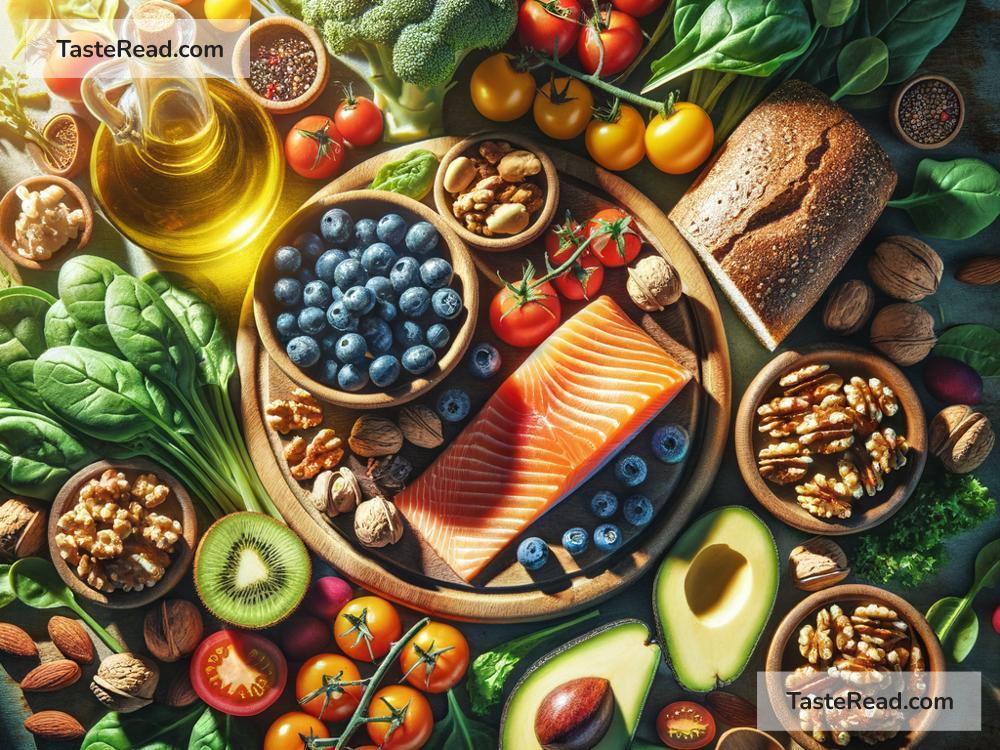Title: Foods That Help Reduce Heart Disease Risk
Heart disease is a serious problem around the world and one of the leading causes of death. The good news is that many cases of heart disease can be prevented by making healthier lifestyle choices, particularly when it comes to what we eat. A heart-friendly diet can go a long way in keeping your heart healthy and strong. In this blog, we’ll talk about foods that help reduce the risk of heart disease in simple and easy-to-understand terms.
Why Does Food Matter for Heart Health?
Your heart is like the engine of your body. It pumps blood, carrying oxygen and nutrients to keep you alive and well. The food you eat affects your heart directly. A diet high in unhealthy fats, salt, and sugar can damage your blood vessels, increase cholesterol levels, and lead to plaque buildup in your arteries, which makes it harder for blood to flow. On the other hand, eating nutritious foods can strengthen your heart, improve circulation, lower cholesterol, and reduce inflammation.
Heart-Healthy Foods to Include in Your Diet
Here are some foods that are especially good for supporting heart health:
1. Fruits and Vegetables
Fruits and vegetables are packed with vitamins, minerals, and fiber, which are all great for your heart. They also contain antioxidants that help reduce inflammation in your body. Some of the best choices include:
- Leafy Greens: Spinach, kale, and collard greens are rich in potassium, which helps manage blood pressure.
- Berries: Blueberries, strawberries, and raspberries are loaded with antioxidants that help fight free radicals, substances that can damage your heart.
- Citrus Fruits: Oranges, grapefruits, and lemons contain vitamin C, which can lower cholesterol levels.
Aim to eat a variety of colorful fruits and veggies daily—the more colors, the better!
2. Whole Grains
Whole grains like oatmeal, brown rice, whole-wheat bread, and quinoa are high in fiber, which helps lower cholesterol and keeps your arteries clear. Unlike refined grains, whole grains don’t spike your blood sugar as much. Start your mornings with a bowl of oatmeal or swap white rice for brown rice to give your heart a helping hand.
3. Fatty Fish
Fatty fish such as salmon, mackerel, and sardines are rich in omega-3 fatty acids. Omega-3s are healthy fats that can reduce inflammation, lower triglycerides (fat in your blood), and improve heart rhythm. Try eating fish at least twice a week for the best results. If you’re not a fan of fish, you can also get omega-3s from walnuts, flaxseeds, and chia seeds.
4. Nuts and Seeds
Nuts like almonds, walnuts, and pistachios are excellent heart-friendly snacks. They’re packed with healthy fats, protein, and fiber, which can help lower cholesterol and reduce inflammation. Seeds like flaxseeds and chia seeds also provide omega-3 fatty acids and fiber. Just remember to eat them in moderation since they’re high in calories.
5. Legumes
Beans, lentils, chickpeas, and peas are loaded with fiber, protein, and nutrients that protect your heart. Fiber helps lower cholesterol, while plant-based protein is easier on your heart than meat-based protein. Legumes are very versatile—you can add them to soups, salads, or casseroles.
6. Healthy Fats
Not all fats are bad—some fats are essential for heart health. Choose unsaturated fats like olive oil, avocado, and fatty fish instead of saturated fats from butter or fried foods. Olive oil, for example, is packed with monounsaturated fats, which can lower bad cholesterol levels and increase good cholesterol levels.
7. Low-Fat Dairy
Too much full-fat dairy can increase cholesterol levels due to its saturated fat content. Instead, choose low-fat or fat-free options for milk, yogurt, and cheese to support heart health while still getting the calcium your body needs.
8. Dark Chocolate
Good news for chocolate lovers! Dark chocolate that contains at least 70% cocoa is rich in antioxidants called flavonoids. These compounds can lower blood pressure and improve blood flow. Of course, moderation is key—too much sugar can harm your heart.
9. Green Tea
Green tea is a refreshing drink that’s also good for your heart. It contains antioxidants that may help reduce bad cholesterol and improve blood flow. Swap sugary sodas or heavy coffees for green tea to boost your heart health.
Foods to Avoid
While adding heart-healthy foods to your diet is important, it’s equally critical to limit foods that harm your heart. Try to avoid:
- Trans Fats: Found in processed snacks, fast food, and some margarine.
- Excess Salt: Too much salt can raise blood pressure, straining the heart.
- Sugary Drinks and Treats: These increase the risk of obesity and diabetes, which are major contributors to heart disease.
- Fried Foods: Fried foods are often high in unhealthy fats that clog up your arteries.
Conclusion
Your heart works hard for you every day—so why not take care of it by eating foods that keep it healthy? A balanced diet rich in fruits, vegetables, whole grains, fatty fish, nuts, legumes, and healthy fats can make a big difference in reducing the risk of heart disease. Combine healthy eating with regular exercise, proper sleep, and stress management, and you’ll be giving your heart the best chance to thrive.
Making small changes in your diet today can lead to big improvements in your heart health tomorrow. So, stock up on heart-friendly foods and take one step closer to living a healthier, happier life!
Remember, your heart deserves the best—let your plate reflect that!


